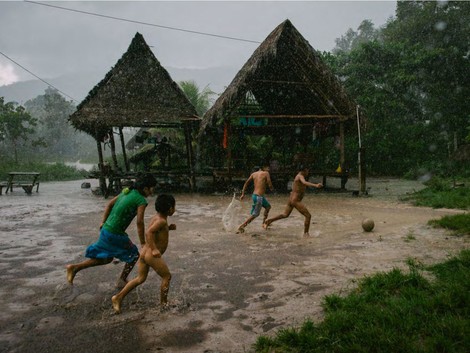Your podcast discovery platform
Curious minds select the most fascinating podcasts from around the world. Discover hand-piqd audio recommendations on your favorite topics.

piqer for: Climate and Environment
Pamela works as a Press & Communications Manager for an international NGO (IWGIA) defending indigenous peoples' rights. She holds an Erasmus Mundus MA in Journalism, Media & Globalisation from Hamburg and Aarhus University and an MA in Political Science from the University of Buenos Aires. She will be putting the eye on international media coverage of indigenous communities and their demands.
Indigenous Autonomous Government Wins Case Against Extractivism
Having their own indigenous local governments is one of the most significant claims made by indigenous peoples in Latin America. Territorial self-governance involves all processes related to how indigenous societies control and decide how to administer the future of their ways of life within the territory they inhabit.
In Latin America, despite substantial achievements in land titling, extractive industries are continuing their relentless advance onto indigenous territories in search of natural resources. Almost all countries in Latin America have ratified ILO Convention 169, but real consultation with the communities rarely occurs. The convention is an international treaty that recognises the right of indigenous peoples to exercise control over their own development and participate fully in the national development of the states in which they live, in accordance with their unique cultural identities.
Due to extractivism, indigenous communities are facing the loss of control over their territories and environmental degradation of their lands. This enormous pressure on their traditional way of living triggers the urge for territorial self-governance as a political project.
The Wampis in Peru are controlling their own development
The Wampis nation was constituted in 2015 and now its government covers 1.3 million hectares of the Wampis territory in the Amazon rainforest. For this community, autonomy is not sustainable if there is no control over the natural resources within their ancestral land.
Now, they have a say on the economic activities on their land. Last March they took the case of an oil company to court and won. The oil firm was sentenced to conduct consultation, which it still has not attempted.
As the Wampis move forward, questions remain about how different indigenous communities will push their way through deconstructing the nation-state notion for making real their rights on the ground. This could be a major shift in the region’s development agenda.
